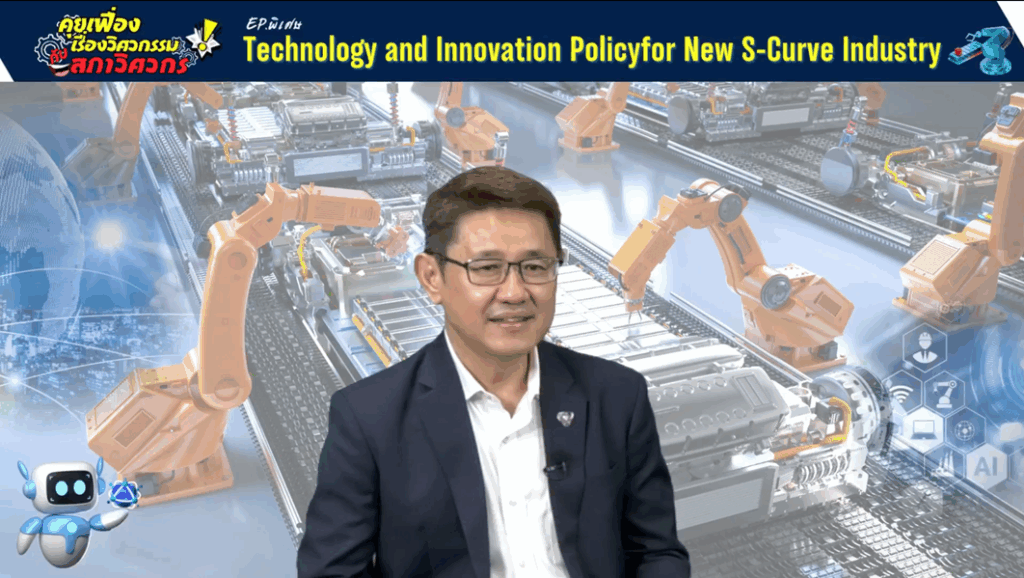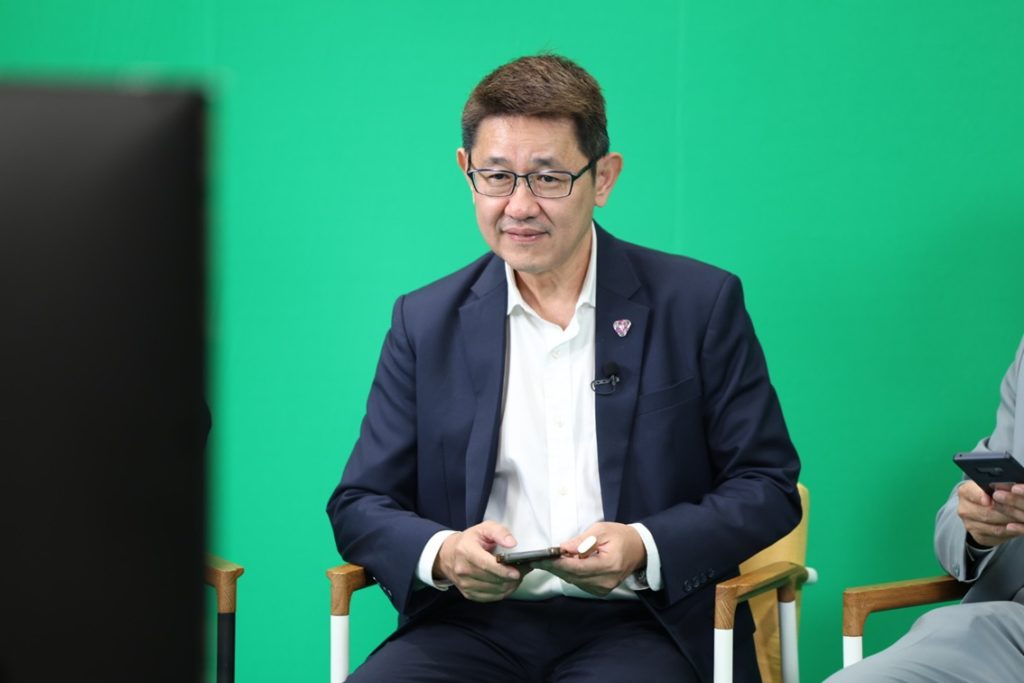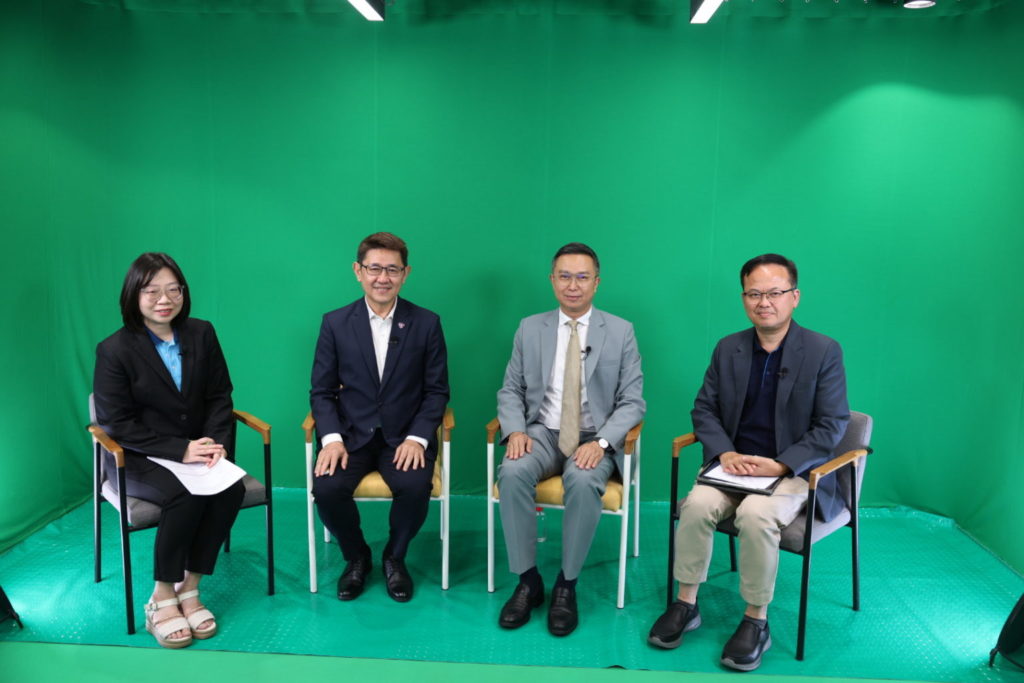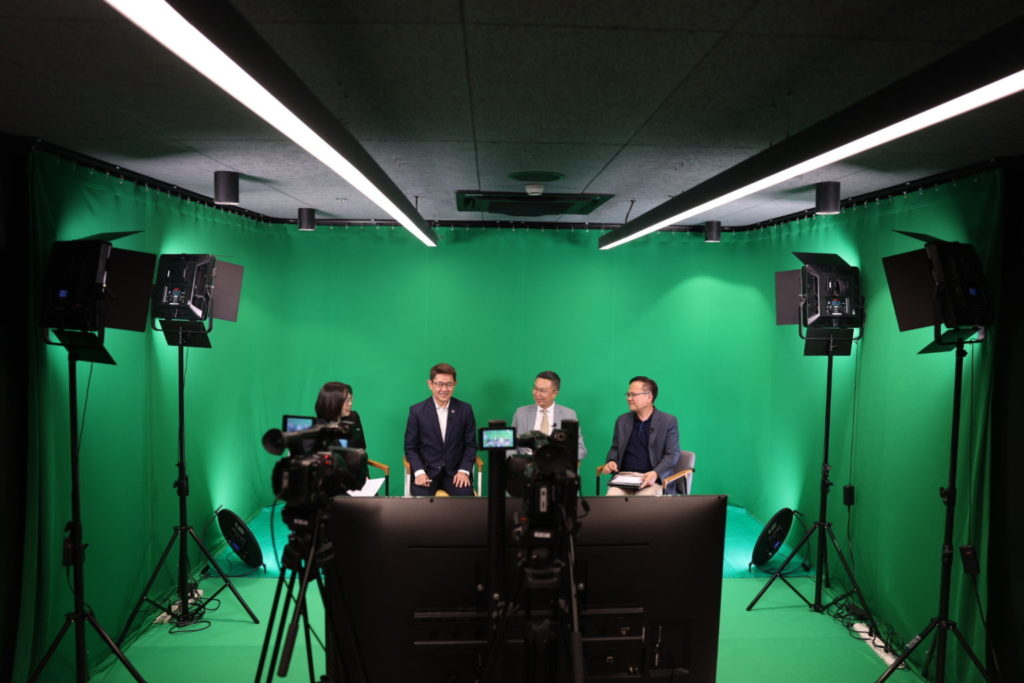On 18 August 2025, Dr. Surachai Sathitkunarat, President of NXPO, joined the seminar on “Technology and Innovation Policy for New S-Curve Industry” organized by the Council of Engineers Thailand. The panel also featured Dr. Buranin Rattanasombat, Chair of the S-Curve Smart City and Artificial Intelligence Committee, Federation of Thai Industries, and Dr. Kitipong Promwong, Subcommittee Member on Education, Research and Engineering Profession Promotion and Executive Vice President, Bangkok Bank Public Company Limited.
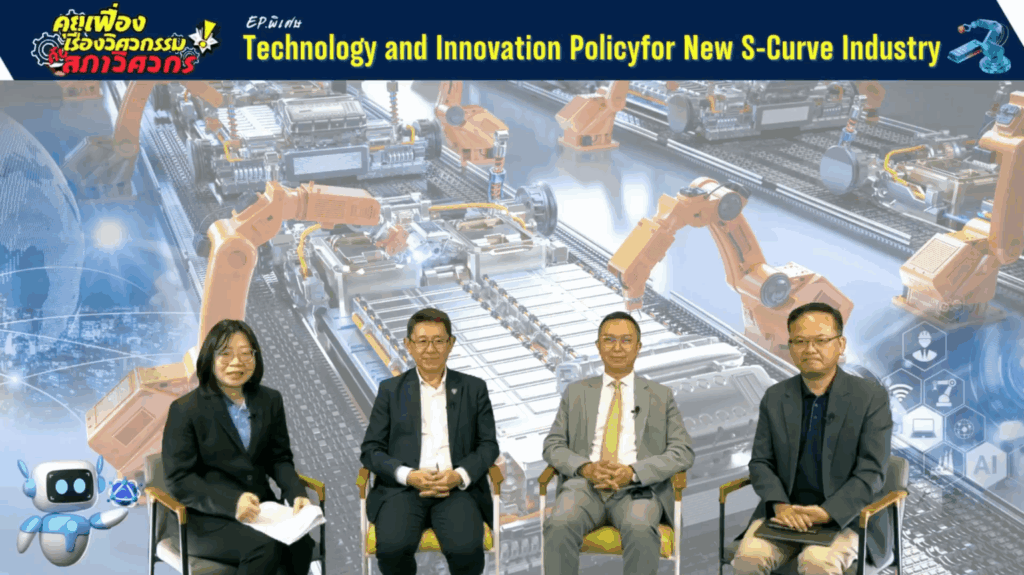
Dr. Surachai emphasized that the development of Thai industries must continue under the framework of the 12 targeted industries (12 S-Curve) while adapting to global shifts. NXPO is responsible for formulating higher education, science, research, and innovation policies to support future industries, including:
- Future Food – leveraging science and innovation to improve nutritional and health benefits alongside taste to capture global markets.
- Electric Vehicles (EVs) and Batteries – focusing on battery packs, management systems, and recycling, where Thaiand has competitive potential.
- Semiconductors, Advanced Electronics, Artificial Intelligence (AI), and Synthetic Biology – emerging fields where Thailand is building capacity and fostering international cooperation, including the establishment of the SynBio Consortium.
- Education Industry – addressing declining enrollment by promoting non-degree programs and joint curricula with leading global universities.
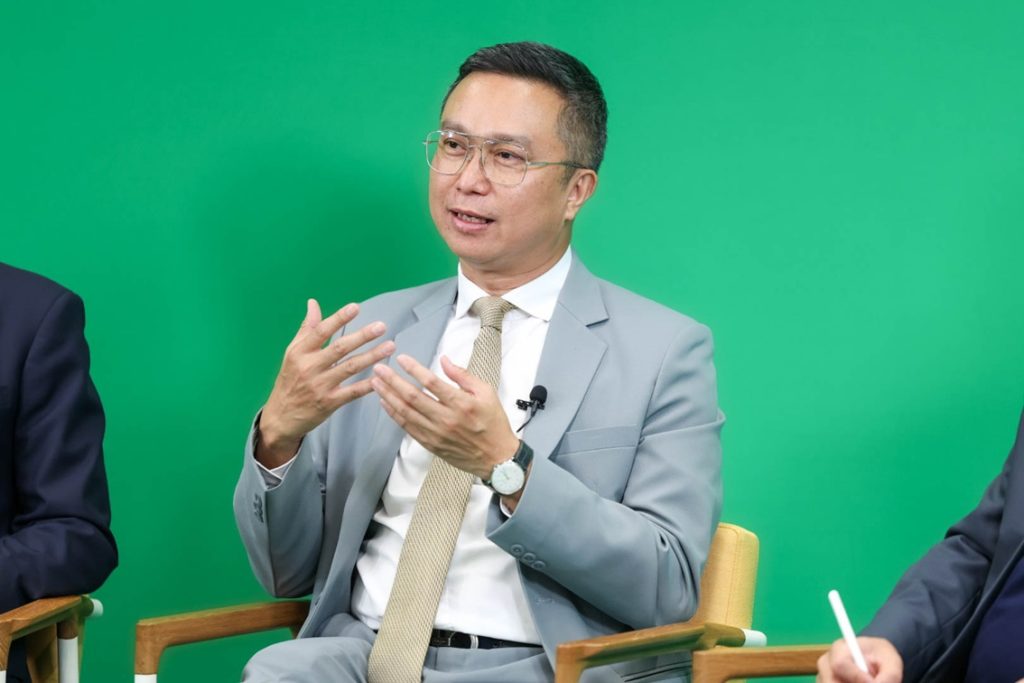
“National security, particularly the development of defense technologies, is now of critical importance in light of recent border incidents. NXPO is prepared to drive research in security and defense technologies to reduce dependence on imports and enable Thailand to become an exporter. The country already possesses the military and private sector capacity to build this industry,” Dr. Surachai emphasized.
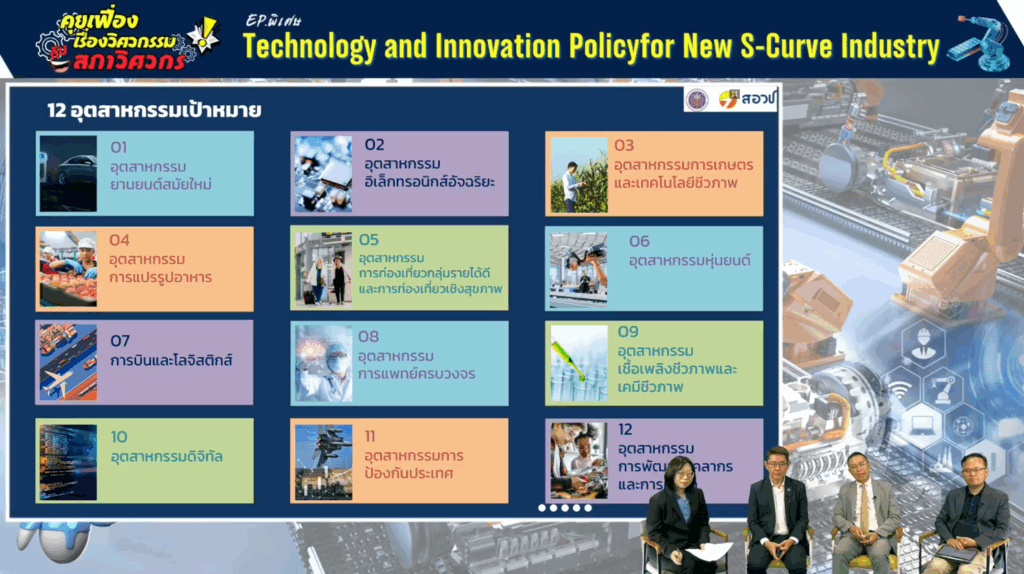
He further stressed the need to remove barriers. This includes the introduction of Thailand Research and Innovation Utilization Promotion (TRIUP) Act, granting researchers rights to their work, and the adoption of an Offset Policy for government procurement projects exceeding 1 billion THB to ensure that benefits are retained within the country. In higher education, the Higher Education Sandbox initiative is being advanced to create flexible, industry-aligned programs in fields such as EVs, AI, and advanced electronics.
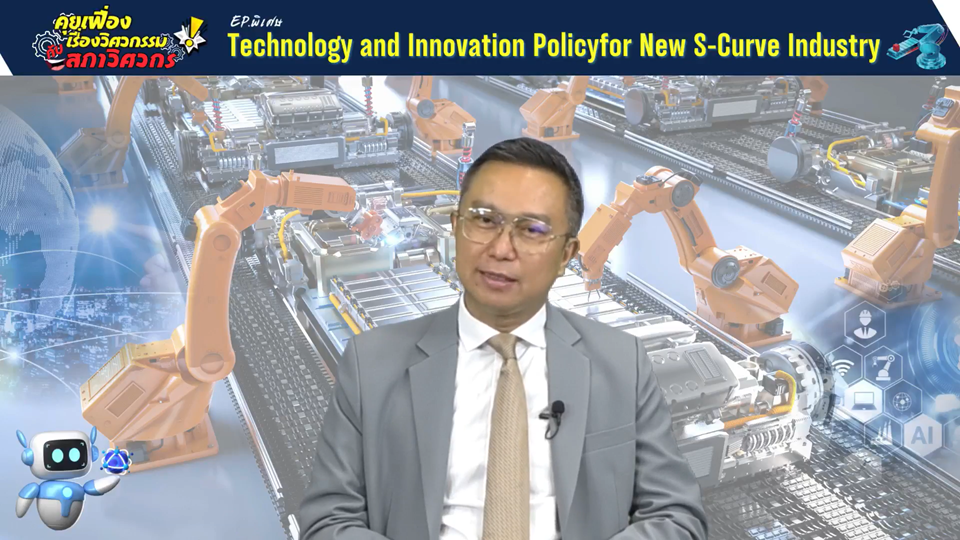
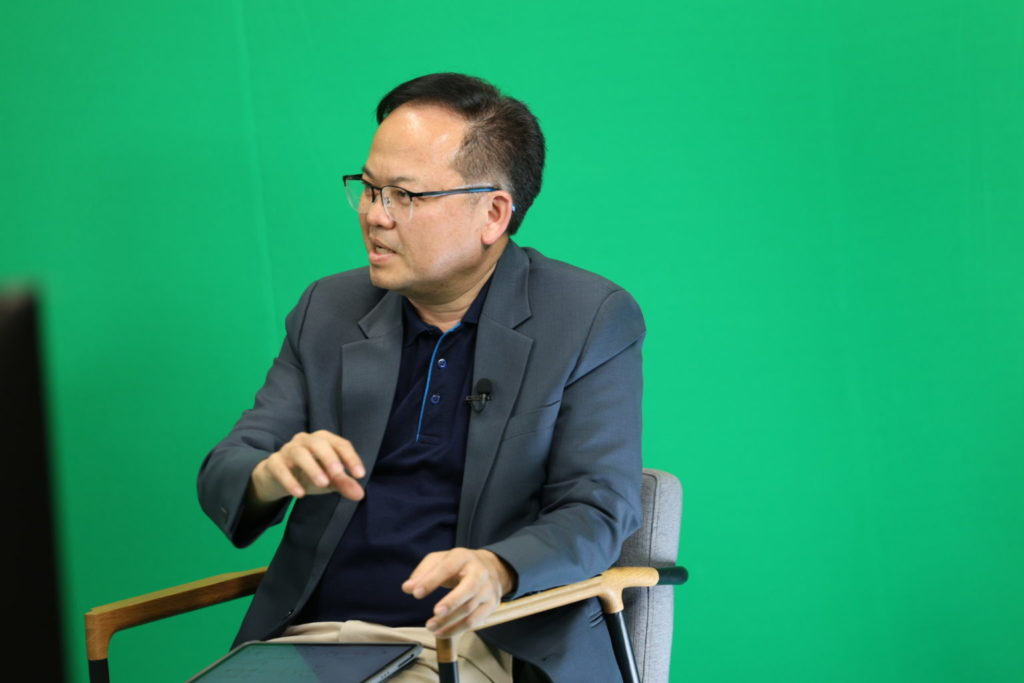
Dr. Kitipong remarked that the government’s original S-Curve framework, which focused on five core industries—food, automotive, tourism, agriculture, and electronics—was not sufficient to drive national development. New S-Curve industries, including semiconductors, advanced medical technology, digital, and biotechnology, are now essential. He noted that while the government has established a Competitiveness Enhancement Fund under the BOI, Thai industries continue to face challenges ranging from tax competition to the influx of Chinese products in global markets. What remains lacking is effective innovation management and upgrading across six areas: markets, productivity, innovation, human capital, ESG, and finance.
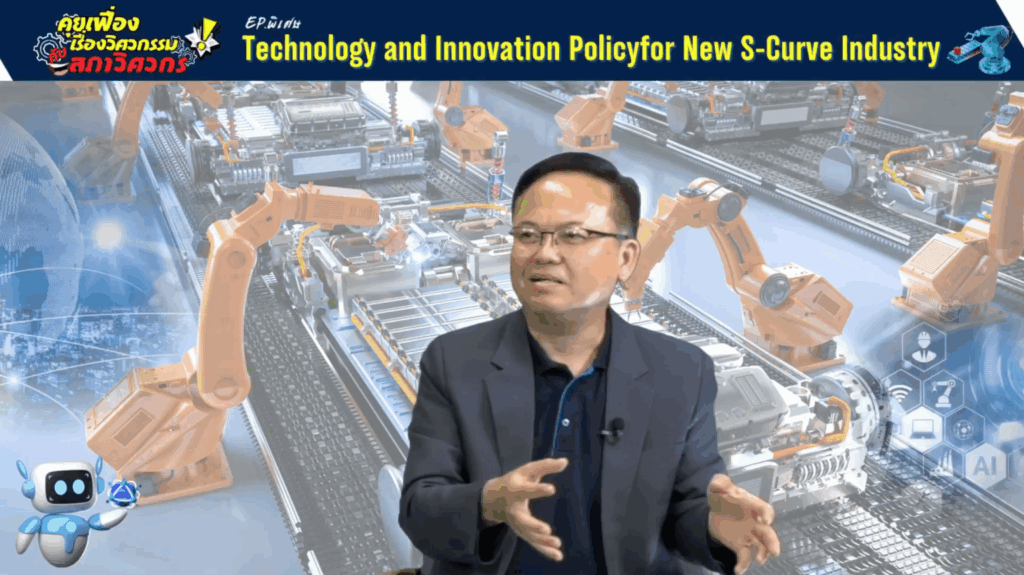
Dr. Buranin reflected that Thai businesses remain heavily dependent on manufacturing rather than creating their own technologies, keeping the country trapped in the middle-income stage. With the world struggling with economic slowdown, mounting public debt, and climate change, he emphasized that Thailand must embrace innovation-driven transformation, particularly in future food, MedTech, industrial AI, and climate tech, to ensure resilience and competitiveness.
